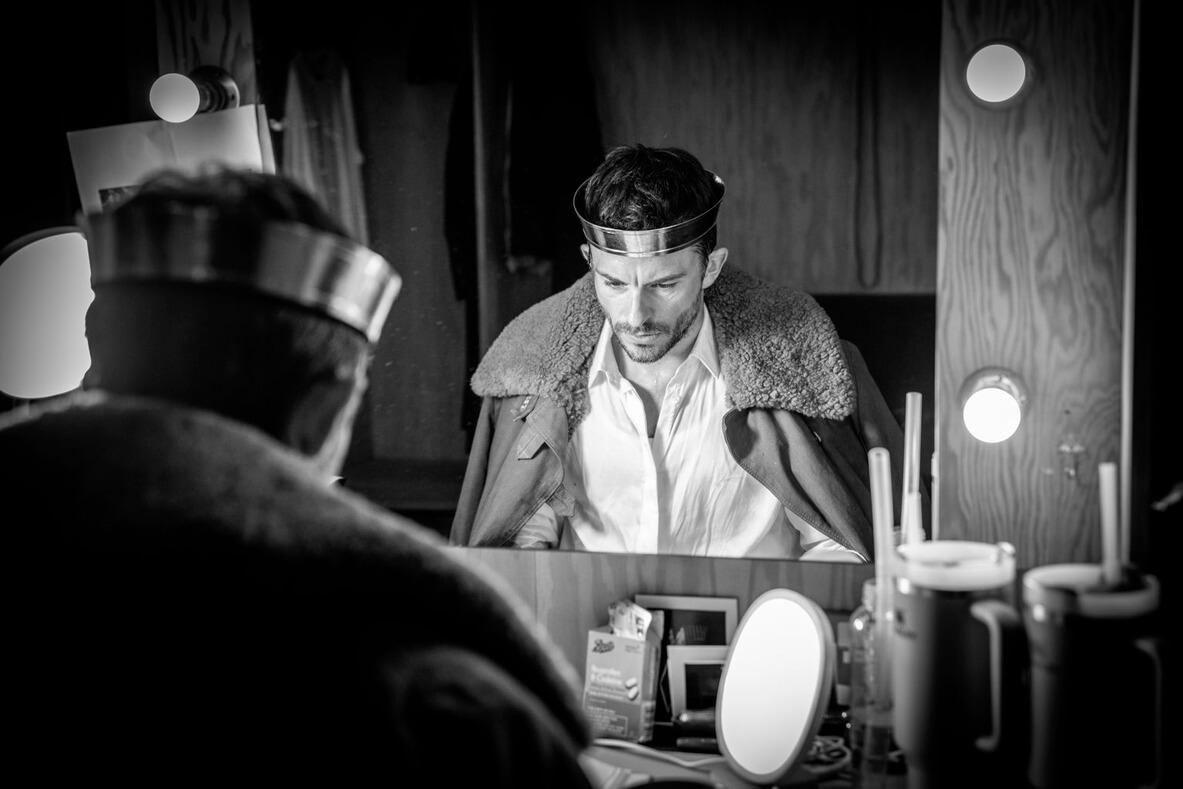The two act opera with music by Jake Heggie and libretto by Gene Sheer opens the disjointed yarn with Clara, Angel Second Class (soprano Danielle de Niese) perched atop a swing, counting stars and still awaiting her opportunity after 200 years, to save a soul and earn her wings. Following her interception of prayers, she is despatched through swathes of projected snow, to Bedford Falls New York. Whilst much of the original story’s trajectory remains the same (but with variously elongated and truncated scenes to suit the operatic style), sharp readers will have noted that the movie’s sweet old gentleman Angel Clarence (played by Henry Travers) has, for the purposes of the opera, been transformed into a female.
As the co-writers mused, their intention was to distill the classic Christmas story but in so doing, the idea was not to improve on the source, but rather to illuminate the material from a new angle, to enable experience of the characters and themes deeply and differently, to love them again as if for the first time.
Oddly enough, in the context of the story (which is earnest and twee by turns), this reviewer felt largely alienated by the music and numbed by the character’s expressions of love and other passions during the majority of Act I. Searing orchestral strings and shrill, impassioned vocal projections — even when delivered by powerful, talented young singers — soon lose their appeal and the first half’s proceedings became one long, disappointingly dull dirge.
Thankfully, following the interval, things seemed to take a decided turn for the better — perhaps due to a sip or two of ENO wine — as George Bailey (tenor Frederick Ballentine) deals with his tormentor, the usurious, oily slum landlord Potter (baritone Michael Mayes) whilst trying to cling onto his sanity and the family he has generated with wife Mary (soprano Jennifer France). But it soon becomes apparent that George not only resents giving-up his dreams in favour of his war hero brother Harry (bass-baritone Donovan Singletary) but possesses a fanciful preoccupation with the world outside of his home town which due to overwhelming responsibilities, he has never been able to explore causing him to blame and behave unkindly towards his children and others, rendering him dislikable to the audience.
Gabrielle Dalton’s wobbly set is a tunnelled stable-like affair with various life events shrouded behind doors which are trundled-out and explored at intervals. It felt a tad forensic and utilitarian as a device and worked against the story’s imaginative flow in director /choreographer Aletta Collins’ production. Nicole Paiement just about kept control of the orchestra with her hypnotic conducting style but there were obvious disconnects with some of the trickier moments between pit and on-stage chorus.
After a music-less interval where Clara allows George to see the world as it would have been without him, the latter-stage schmaltz gives the audience what they came for. In truth the final apple-pie moments come as a blessed relief after what has been a fairly drawn-out affair. One cannot help wondering how the material would have faired as a musical rather than an opera, but here it is at the London Coliseum until 10th Dec for those who dare make their own assessment.

 ENO 22-23, It’s a Wonderful Life, Donovan Singletary, Ronald Samm, Frederick Ballentine, Danielle de Niese © Lloyd Winters
ENO 22-23, It’s a Wonderful Life, Donovan Singletary, Ronald Samm, Frederick Ballentine, Danielle de Niese © Lloyd Winters

